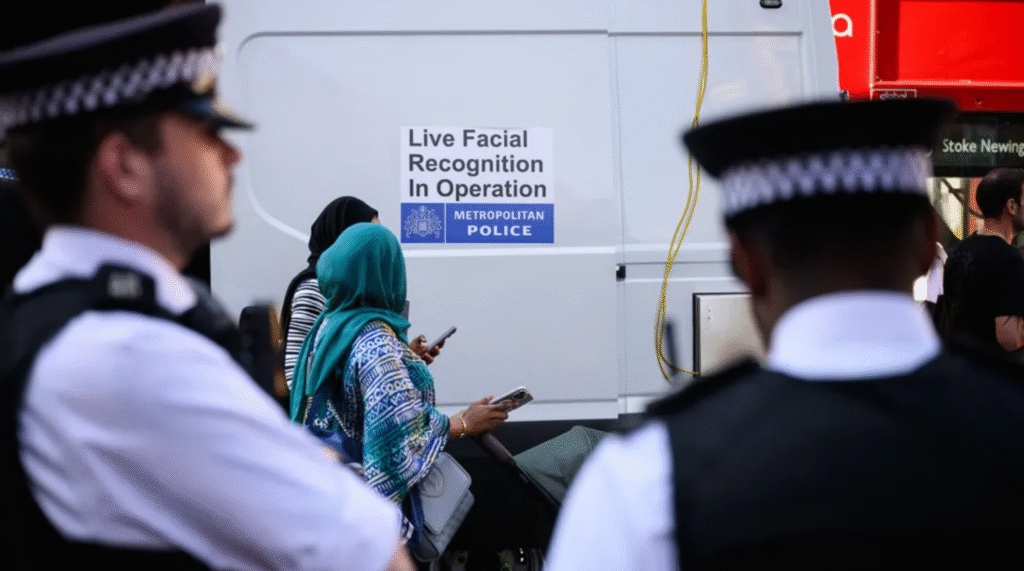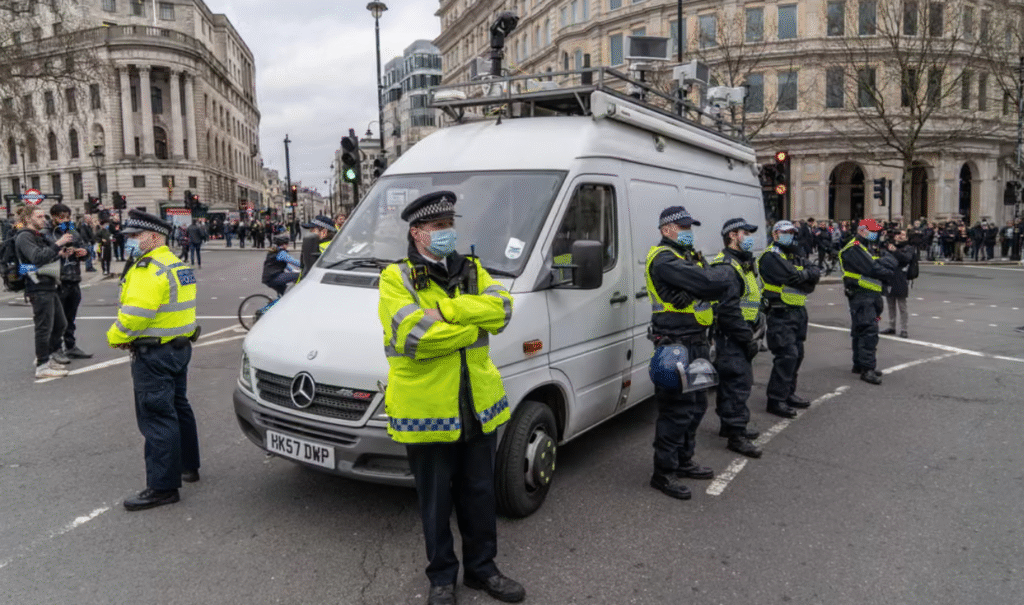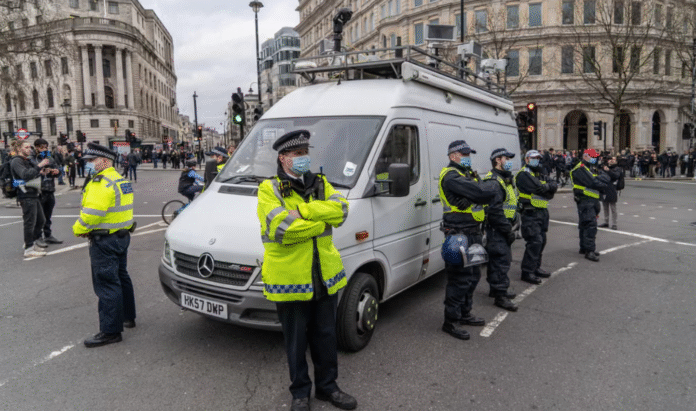Facial Recognition Vans Expansion Raises Serious Privacy Concerns in the UK
The UK government has announced a major facial recognition vans expansion, rolling out 10 additional mobile units across seven police forces in England. These vans, equipped with advanced live facial recognition (LFR) technology, will be used to locate suspects wanted for serious crimes such as sexual offences, violent assaults, and homicides.
The Home Office claims this technology has already shown promising results in London, leading to 580 arrests in just one year, including 52 registered sex offenders who breached their release conditions. Supporters argue that this is a vital step forward in tackling dangerous offenders, but privacy advocates are sounding the alarm over what they call an unprecedented expansion of surveillance powers.

What is Live Facial Recognition?
Live facial recognition technology works by scanning faces in public spaces and comparing them against a database of wanted individuals. Each camera takes precise measurements, such as the distance between the eyes or the length of the jawline, and then matches them with a watchlist.
In the facial recognition vans expansion, each unit will have a trained officer on site to manually verify potential matches before any action is taken. According to the Home Office, the technology will only be deployed for identifying individuals suspected of serious offences.
Police Forces to Get New Vans
The new facial recognition vans will be distributed among the following seven forces:
- Greater Manchester
- West Yorkshire
- Bedfordshire
- Surrey
- Sussex
- Thames Valley
- Hampshire
This expansion will roughly double the current number of LFR vehicles operating in England. While the technology was first tested at the 2017 UEFA Champions League Final in Cardiff, it has mainly been used in London, South Wales, and Essex. Notable past deployments include high-profile concerts, such as Beyoncé’s, to scan for individuals wanted for serious crimes.
Privacy Groups Push Back
Despite the government’s positive outlook, privacy campaigners remain deeply concerned. Big Brother Watch, a leading civil liberties group, called the rollout a “significant expansion of the surveillance state.” Interim Director Rebecca Vincent criticized the lack of specific laws authorizing the use of this technology, arguing that police are operating without proper oversight.
In fact, Big Brother Watch is pursuing a legal challenge against the Metropolitan Police’s use of LFR, supported by Shaun Thompson, a man who was wrongly identified by the system. Critics argue that such errors can lead to wrongful stops, searches, or even arrests.
Concerns Over a ‘Surveillance Society’
Labour peer Baroness Chakrabarti has also expressed serious reservations, describing LFR as “incredibly intrusive” and warning that it could push the UK toward a “total surveillance society.” She raised concerns over potential violations of privacy, freedom of assembly, and the risk of false matches that could undermine public trust.
While she welcomed the government’s consultation on legislation to regulate LFR use, she pointed out that so far, the technology has been deployed “completely outside the law,” with police forces essentially setting their own rules.
Government’s Defence of the Expansion
Home Office Minister Diana Johnson has rejected claims that the facial recognition vans expansion represents an overreach of state power. She insists the technology will be used in a “measured and proportionate” way, with clear signposting to inform the public when LFR is active.
Johnson described facial recognition as “a powerful tool for policing,” noting that it has the potential to quickly locate dangerous individuals and prevent serious crimes. According to the government, officers will be required to follow both the College of Policing’s guidance and the Surveillance Camera Code of Practice.
Accuracy and Bias Testing
One of the most common criticisms of facial recognition technology worldwide is the possibility of bias based on ethnicity, age, or gender. However, the UK government says independent testing conducted by the National Physical Laboratory found no evidence of such bias in the algorithm at the settings used by police.
These findings are being used to counter public skepticism, although privacy advocates say more transparency is needed to fully verify these claims.

Past Controversies and Misuse Concerns
Even with assurances, there have been instances where facial recognition was used in less serious contexts, such as identifying ticket touts at sporting events. Critics worry that such uses go beyond the original intention of catching high-priority suspects and could set a dangerous precedent for mission creep.
Training and Implementation Challenges
The Police Federation of England and Wales supports the introduction of new technology but stresses the importance of comprehensive officer training. With police forces already facing recruitment and retention challenges, ensuring that officers fully understand both the technical and ethical implications of LFR will be critical.
Public Engagement and Future Legislation
As part of its strategy, the government has launched a public consultation to gather input on safeguards for the technology. Officials hope this process will lead to a clear legal framework that can balance public safety with privacy rights.
Supporters believe that if implemented correctly, the facial recognition vans expansion could significantly strengthen policing capabilities and deter criminals. Opponents, however, see it as a step toward a society where constant surveillance becomes the norm.
A Growing Debate
The controversy surrounding facial recognition technology is unlikely to fade anytime soon. While the UK pushes forward with this ambitious expansion, questions remain about how it will be regulated, how errors will be handled, and whether the benefits truly outweigh the potential risks to civil liberties.
As the rollout continues, public opinion, along with the results of ongoing legal challenges, will play a major role in determining whether facial recognition vans become a standard feature of UK policing or a symbol of overreach that prompts widespread resistance.

